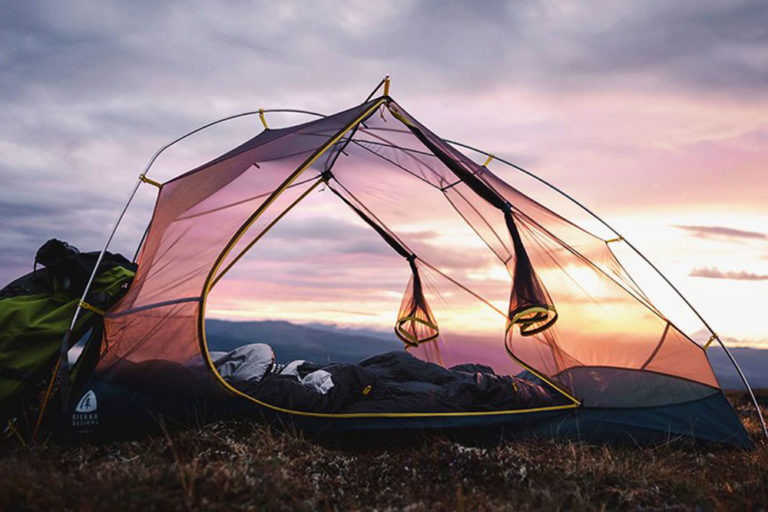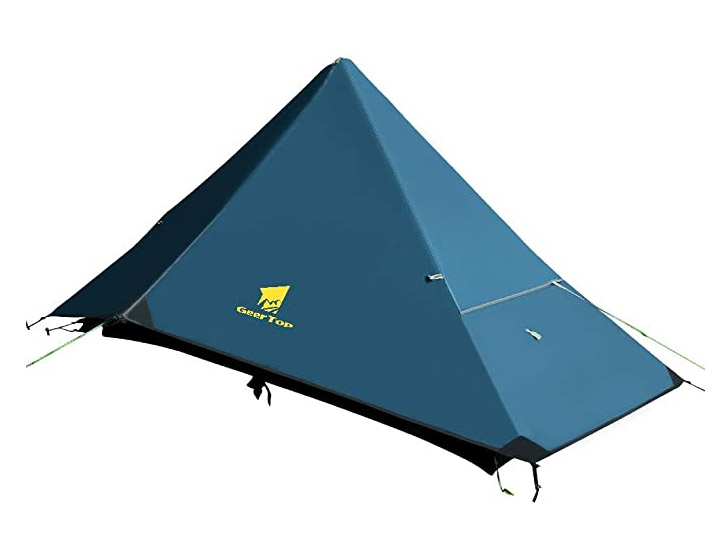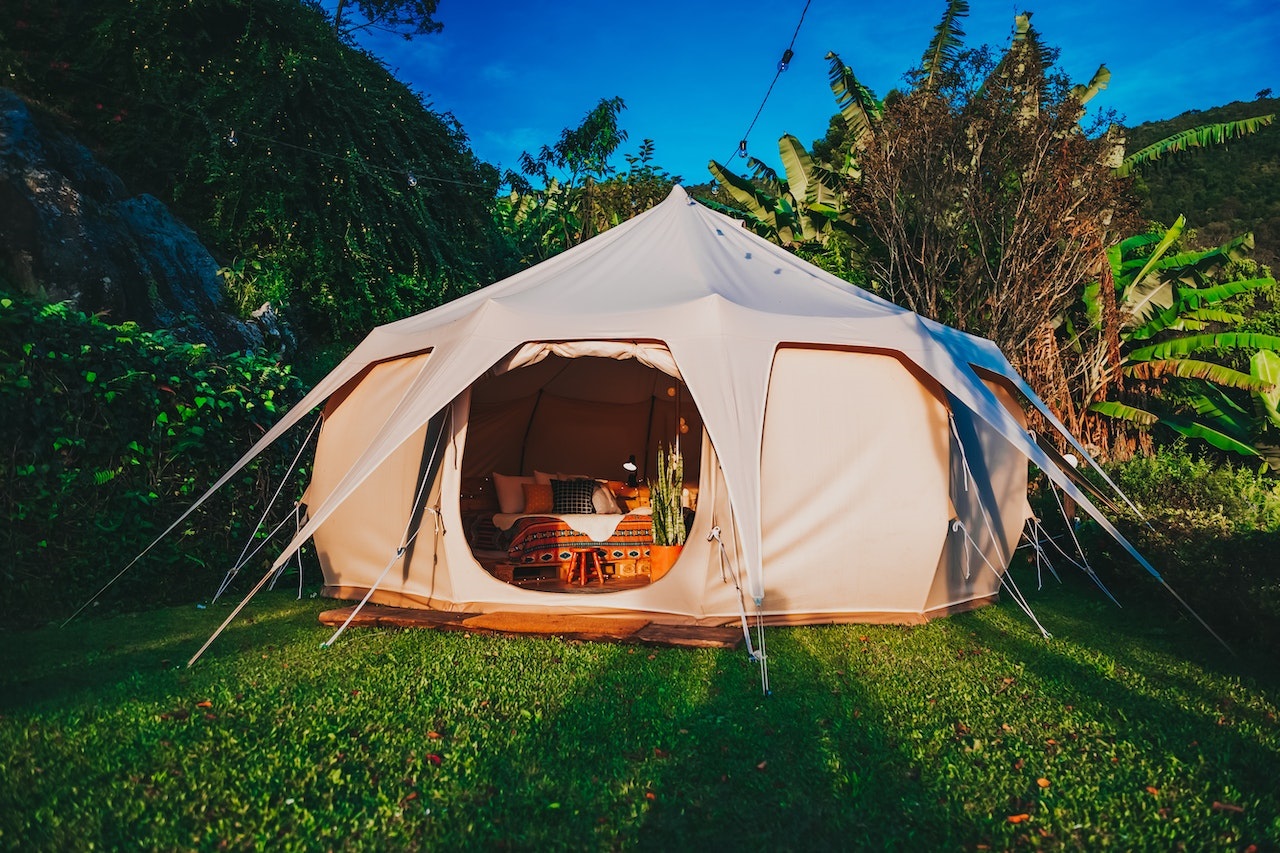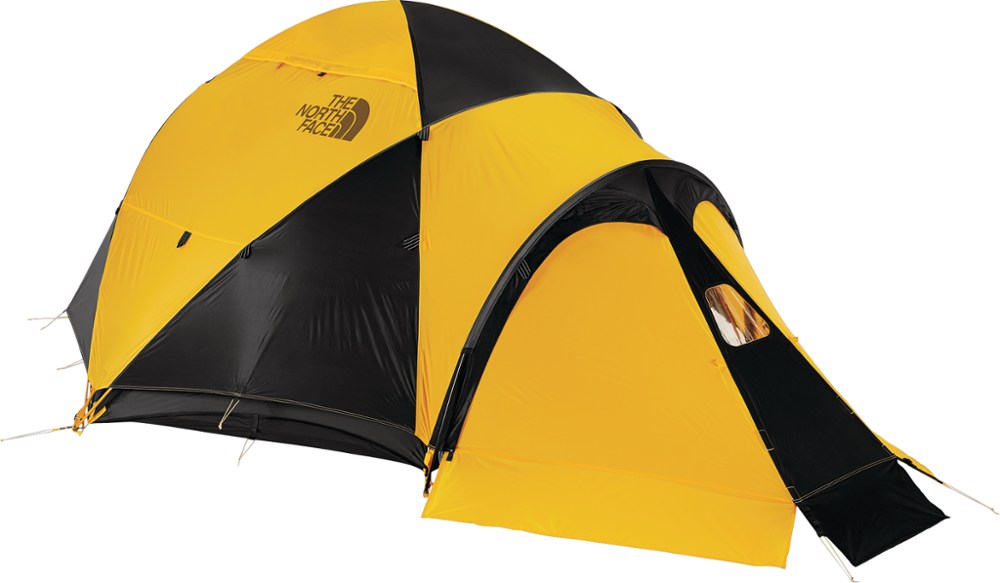Ultralight tent camping is growing in popularity among outdoor enthusiasts
Ultralight tent camping is a growing trend among outdoor enthusiasts, gaining popularity for its emphasis on weight reduction, minimalism, and increased mobility. The desire to lighten pack weight, increase mobility, and foster a deeper connection with nature has led many campers to embrace the benefits of ultralight tent camping. With advancements in gear technology and a supportive community, this trend is likely to continue to gain momentum, providing outdoor adventurers with a more enjoyable and fulfilling camping experience.

The Appeal of Ultralight Tent Camping
Ultralight tent camping has gained popularity among outdoor enthusiasts due to its unique appeal and benefits. In this article, we will explore the sense of liberation and mobility achieved through carrying a lightweight tent, the opportunities for remote and off-the-beaten-path camping experiences, and the reduced impact on the environment and personal energy expenditure associated with ultralight gear.
The sense of liberation and mobility achieved through carrying a lightweight tent:
- Freedom of Movement: Carrying a lightweight tent allows campers to experience a sense of freedom and mobility. With reduced weight, hikers and backpackers can cover longer distances and navigate challenging terrains more easily.
- Flexibility in Campsite Selection: Ultralight tents enable campers to be more flexible in choosing their campsites. As they are not burdened by heavy gear, they can explore and camp in a wider range of locations, including remote and secluded areas.
- Ease of Setup and Breakdown: Ultralight tents are designed with simplicity and efficiency in mind. Setting up and packing away these lightweight tents is quick and straightforward, allowing campers to spend more time enjoying their outdoor activities.
The opportunities for remote and off-the-beaten-path camping experiences with ultralight tents:

- Access to Remote Areas: Ultralight tent camping opens up opportunities for remote wilderness experiences. Campers can venture into off-the-beaten-path locations that may be inaccessible with traditional camping gear, allowing them to connect with nature in more secluded and pristine environments.
- Solitude and Serenity: By reaching remote areas, campers can enjoy a greater sense of solitude and serenity. Being away from crowded campgrounds and popular trails provides a unique and tranquil camping experience.
- Close Proximity to Nature: Ultralight tent camping allows campers to immerse themselves in the natural surroundings. They can wake up to breathtaking views, experience wildlife encounters, and fully appreciate the sights and sounds of nature.
The reduced impact on the environment and personal energy expenditure with lightweight gear:
- Environmental Impact: Ultralight tent camping promotes environmental stewardship by reducing the overall impact on the environment. With lightweight gear, campers leave a smaller footprint, as they consume fewer resources and produce less waste.
- Leave No Trace Principles: Carrying lightweight gear aligns with the principles of Leave No Trace, which emphasize minimizing human impact on the environment. Ultralight campers are better equipped to practice responsible outdoor ethics, leaving the natural surroundings undisturbed and preserving the beauty of the wilderness.
- Personal Energy Expenditure: Carrying less weight with ultralight gear reduces the physical strain on campers, allowing them to conserve energy and enjoy their outdoor adventures for longer periods. This can lead to a more enjoyable and sustainable camping experience.
Essential Gear and Skills for Ultralight Tent Camping
Ultralight tent camping requires careful consideration of gear choices and the development of certain skills. In this article, we will explore the importance of selecting ultralight gear, including tents, sleeping bags, and backpacks. We will also provide tips for minimizing pack weight through smart gear choices and efficient packing techniques. Additionally, we will discuss the significance of developing lightweight camping skills such as campsite selection and meal planning.
The importance of carefully selecting ultralight gear, including tents, sleeping bags, and backpacks:
- Ultralight Tents: Choose a lightweight tent that balances weight, durability, and functionality. Look for tents made from high-quality materials and minimalist designs that offer sufficient weather protection and comfort.
- Ultralight Sleeping Bags: Opt for a sleeping bag that provides adequate insulation while minimizing weight. Consider the temperature rating, material, and compressibility of the sleeping bag to ensure it meets your specific needs.
- Ultralight Backpacks: Select a backpack that is specifically designed for ultralight camping and offers a good combination of weight, comfort, and durability. Look for features such as lightweight materials, streamlined designs, and adjustable suspension systems.
Tips for minimizing pack weight through smart gear choices and efficient packing techniques:
- Multi-purpose Gear: Choose gear that serves multiple functions to reduce weight. For example, lightweight trekking poles can double as tent poles, and a lightweight down jacket can act as both insulation and a pillow.
- Lightweight Fabrics: Opt for gear made from lightweight, yet durable, fabrics. Look for tents, sleeping bags, and backpacks constructed from lightweight materials without compromising on quality and functionality.
- Minimize Redundancy: Assess your gear list and eliminate any items that have similar functions or are unnecessary. Consider what is essential for your specific trip and leave behind any non-essential items.
- Efficient Packing: Utilize compression sacks or stuff sacks to pack gear tightly and reduce bulk. Pack items in a logical and organized manner, prioritizing frequently used items for easy access.
The significance of developing lightweight camping skills such as campsite selection and meal planning:

- Campsite Selection: Develop the skill of selecting suitable campsites to optimize comfort and minimize environmental impact. Look for level ground, natural windbreaks, and suitable drainage to ensure a safe and comfortable camping experience.
- Meal Planning: Plan and pack lightweight, nutritious meals to minimize food weight. Opt for dehydrated or lightweight food options that require minimal cooking time and fuel consumption.
- Water Management: Develop skills for efficient water management to reduce the weight of carrying excess water. Research and plan water sources along your route and utilize lightweight water filtration or purification systems.
- Leave No Trace Principles: Embrace the principles of Leave No Trace and practice responsible outdoor ethics. Leave campsites as you found them and minimize your impact on the environment.
In conclusion, ultralight tent camping requires carefully selecting lightweight gear such as tents, sleeping bags, and backpacks. Minimizing pack weight through smart gear choices and efficient packing techniques is essential. Additionally, developing lightweight camping skills such as campsite selection, meal planning, and practicing Leave No Trace principles enhances the overall ultralight camping experience. By combining the right gear and skills, campers can fully enjoy the freedom and mobility offered by ultralight tent camping while minimizing their impact on the environment.


